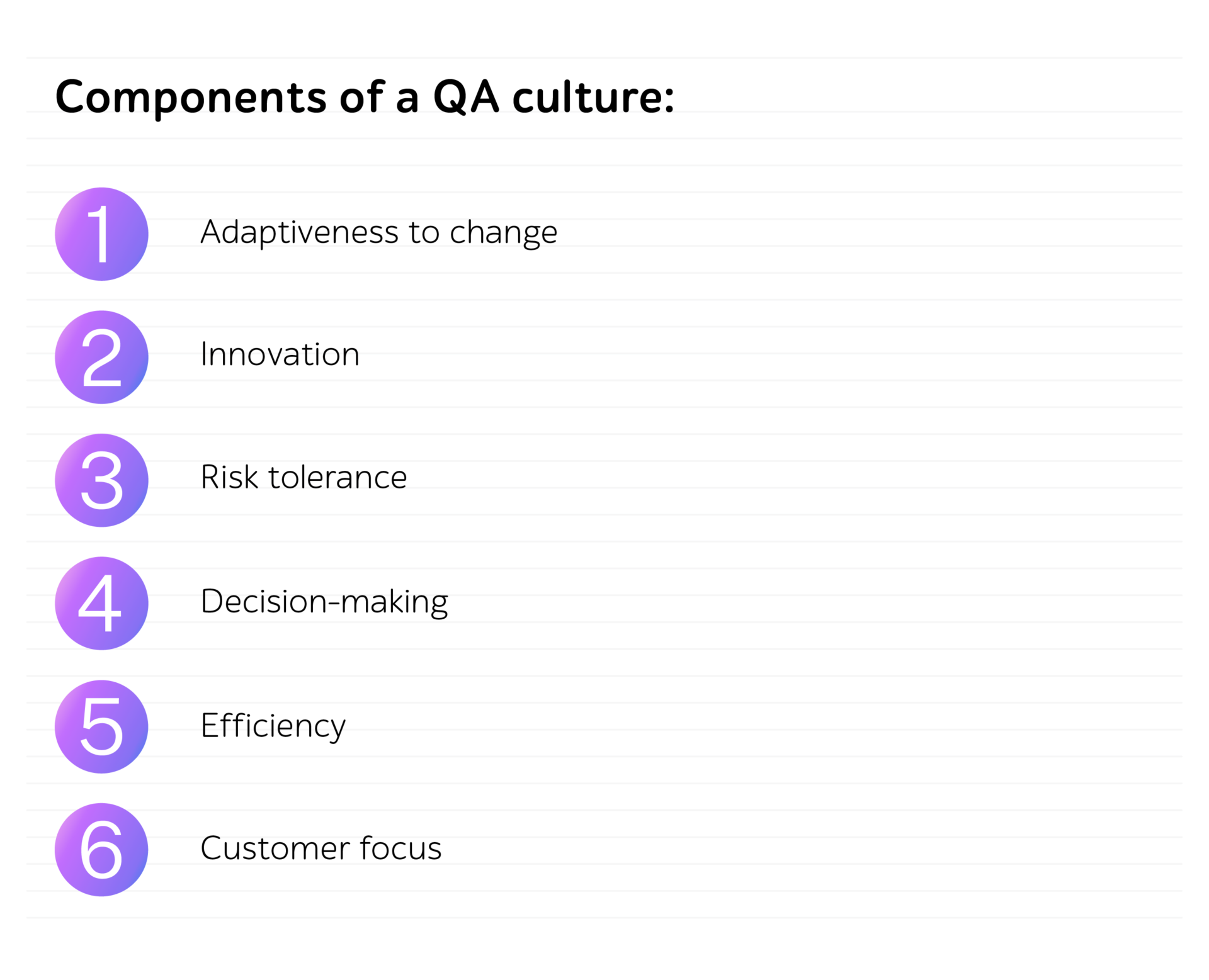
What is a сulture of happiness for a QA company?
Opening
We often hear the words ‘great culture,’ and it is emphasised in many QA companies’ websites and job specifications.
We all want a great culture, but do we actually understand it enough to maintain or improve it?
In this article, I will be sharing all of that.
What is culture of happiness?
I like to think of it like the foundation of a house — without a strong one, there will be no stability to it, and it certainly will not last. It is the key element by which everything else is added, such as a kitchen, bathroom, bedrooms, study, and garden, to name a few.
Culture takes place whether you want it to or not. It is the nucleus of a QA company and is in large part created by the founders and all employees — not by their words alone, but more so by their actions.
Strategy is key in business, but without the right culture, any strategy will fail.
Culture is led by beliefs, attitudes, and practices that people are exposed to when they interact with your business.
Culture, or lack of it, is infinitely more important and could kill your strategy before it even gets off the ground.
Strategy and culture need to mutually support each other. A bit like in a car — no matter how good the parts are, without wheels, you will not be moving very far.
Why does culture matter?
Think back to your past roles that you have enjoyed the most — I’m sure the reason was due to an amazing culture. The opposite applies for roles which you did not like.
There is evidence that good cultures create a feedback loop that often self corrects bad strategy, and also that good strategy gets consumed by bad culture.
From my experience, a better culture helps to create a higher chance of great delivery output — take a happy environment generally, there will be learning, and all the software testing team will be moving in the same direction.
I have seen this in action, and for me it was due to the crew being synchronised and working to meet a common goal. If a team works together, there’s a bigger chance to meet our objectives.
What impact does bad culture have?
A bad culture normally creates fear in the QA team; thus, they generally will be scared to innovate and will make more mistakes. Another big impact — people will not want to work within the company in the future. Or ever come back.
People do not leave the company; they leave the culture.
QA culture also hits revenue; the best performing software testing teams generally are those performing the best long term. In my view, squads who have a bad culture and are still successful, will only maintain high performance in the short term, or they may not actually be meeting their maximum output.
What should your company’s QA culture include?
Remember that culture is more than just creating a great place to work and some words in your mission statement.
The culture should determine what is encouraged, discouraged, and acceptable.
It includes:
- Adaptiveness to change — in business, we need to be flexible to adapt quickly.
- Innovation — making great new software products to keep ahead of the competition.
- Risk tolerance — how much risk are we willing to take?
- Decision making — being brave to take decisions, even when they may fail.
- Efficiency — ensuring that we are efficient in our output.
- Customer focus — how is our culture driving what a customer wants?

Culture starts at the top of a company, and each layer below should be aligned with this.
What can you do to improve your company culture?
- ‘Check the pulse’ and understand your culture.
- Foster conversations and ensure it is a safe space to talk.
- Map your values and purpose.
- Celebrate success together.
- Culture is created by behaviours that you tolerate.
- Change starts at the top — company leaders show how they care about culture.
A leader recognises they are ‘a voice’ around the table, not the ‘voice.’ They allow others to say how culture can be improved and also listen to any concerns within software testing teams.
For me, companies that are culture conscious outperform industry benchmarks. What makes a business unique is its culture and it is often used as a competitive advantage.
I like to think of culture as a tailwind for a travelling plane, it pushes a plane forward and if stars align, you will make it to your destination faster, therefore, it adds hidden value.
Closing
As a leader, we can all impact the culture of the company and move the lever. Though, it takes patience and perseverance.









